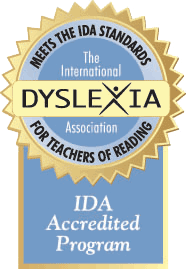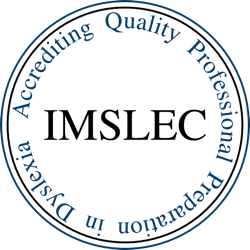Self-Esteem and Struggles in School
Posted by Brainspring on 25th Apr 2019

Kevin Roberts, M.A., Author, Coach, ADHD Expert
Guest Writer
When we wade into the issue of some young people struggling with reading, one of the implications that we don’t hear mentioned a lot is the negative impact on self-esteem. From the very early days of school, reading, as the old TV commercials used to remind us, is fundamental to almost every task and competency related to school. Those of us who struggle with reading find ourselves from those very early, tender years, to increasingly be on the outside looking in. We feel we do not measure up to our peers. We fail at many of the early evaluations of school and we consequently feel bad about ourselves.
In my professional practice helping kids develop strategies to succeed in school, I encounter young people on a daily basis who have experienced serious damage to their self-esteem. A great deal of my work generally revolves around helping to repair that damage, because if a young person does not believe in him or herself, many of our efforts at remediation and alternate strategizing for success will not take root. When dealing with a child who has serious self-esteem problems, we are trying to plant new crops in unproductive soil. The great fertilizer of the mind is self-confidence, or more specifically, an inner sense of competence that psychologists call self-efficacy. So, our first goal is to find ways to increase that child’s self-esteem and there are a variety of ways that we can do this.
I find first and foremost that we need to simply be vigilant, on the lookout for any activity or interest that engages our loved one. Once we find something, we must relentlessly support, encourage, and empower our loved one to succeed. Competence in one area will invariably spill over into other areas as well.
One incredibly powerful pursuit is to help your loved one find ways to help others. Maybe he or she has a penchant for animals, and we could find opportunities to volunteer at animal shelters, or as a family to take in foster pets. Perhaps you have an elderly neighbor who wants to learn how to use the Internet and your child is a technology wiz. Find ways for your loved one to help others and his or her self-confidence will soar!
I regularly provide success stories of people who we know have ADHD, dyslexia, or other challenges which they overcame. When children can relate to the story of someone who faced and overcame their same challenges, self-esteem also tends to increase. One of my favorites is the story of Oskar Schindler of the movie, Schindler’s List. He failed out of school, hated to read, and failed at almost every business he put his hand to. Yet, in times of danger when human life depended on his actions, he saved 1,200 lives from the clutches of the Nazis.
Like Oskar Schindler, many people who struggle in school have great, often untapped, gifts and frequently have high levels of empathy. People who struggle in school know what it’s like to be shunted to society’s margins and often identify with the underdog and with those who suffer. We have to find ways of helping them tap into those gifts.
All too often, our loved ones continue struggling and do not find their calling. They settle for the passion of the screen, becoming smartphone addicts, video game junkies, and spend hours a day watching YouTube. We have to be mindful that they do not turn to the world of technology to the point that they are not developing their unique talents and social skills.
One of the reasons I am so passionate about helping people create balance around technology is that I am presently involved in a study with the Children’s Hospital of Michigan. We are examining the brains of young people who are excessive users of technology and we are finding that over-reliance on technology is potentially having an impact in the brain, particularly the frontal networks involved in executive functioning and behavioral control. We still have much to learn but the warning signs are readily apparent. All parents need to educate themselves so that we can ensure that technology enhances rather than damages our child’s self-esteem.
Coming back to self-esteem, when we have a child who struggles in school, we must be aware of the potential psychological impact. Finding screen-free ways of helping your child develop competence will not only help him or her feel better, but also will be fertilizing the soil of the mind, potentiating the possibility of greater success in school and life.
Kevin has spent a good deal of his adult life coming to terms with his own ADHD and cyber addiction. He has a master’s degree in ADHD and Addiction Studies from Antioch University and has trained therapists, students, physicians, nurses, teachers, parents, and school administrators on the perils of overuse of the Internet and video games, as well as ADHD. Roberts has also appeared on national and local television stations across the country and the world and speaks five languages! To learn more about Kevin’s academic coaching and support, click CLICK HERE.
Books by Kevin Roberts:
Cyber Junkie: Escape the Gaming and Internet Trap (Hazelden 2010)

Movers, Dreamers, and Risk Takers: Unlocking the Power of ADHD (Hazelden 2012)

Get Off That Game Now! The Essential Family Guide to Healthy Screen Behavior (Roberts 2017)
CLICK HERE for a complimentary download!

Schindler’s Gift: How One Man Harnessed ADHD to Change the World (ADDISS 2018)

Learn more about Brainspring’s accredited Orton-Gillingham professional development
Learn more about Brainspring’s Michigan-based Learning Centers
Accreditation:



